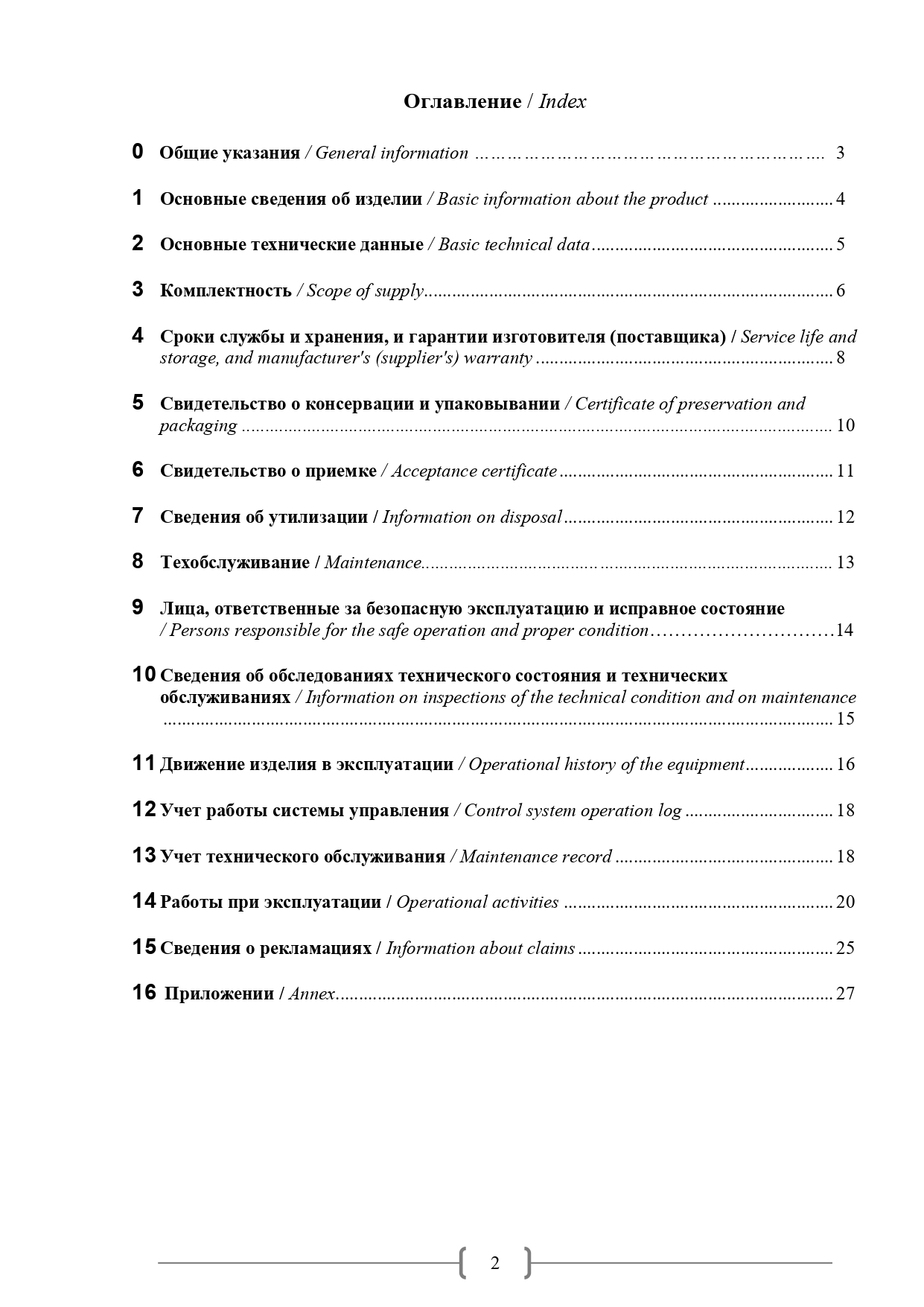The Technical Passport is not a certificate. It’s a document prepared on behalf of and signed by the manufacturer. It plays multiple roles.
What does the Technical Passport include and what is its format?
The Technical Passport (TP) is a mandatory technical document for EAC-certified industrial machinery and equipment. It usually takes the form of a booklet or dossier and contains:
- Manufacturer and product identification data
- Technical specifications and performance characteristics
- Installation, operation, and maintenance conditions
- Estimated service life, warranty, and limitations of use
- Test certificates or calibration data (if applicable)
- Safety instructions and preventive measures
The format is not universally standardized, but is defined by relevant GOST standards, for example GOST R 2.601-2019. Unlike a user manual, the TP is more focused on official documentation than on explanatory guidance.
In practice, the user manual is often provided as an annex to the Technical Passport, as well as the drawings of the equipment.
What is the purpose of the Technical Passport for EAC certification?
The TP must accompany the machine or device throughout its entire lifecycle: from the factory gate to decommissioning.
It is a mandatory part of the documentation for all industrial EAC Marking, and it is also required by many GOST Certificates.
Does the Technical Passport have a customs function?
Strictly speaking, the TP is not a customs document and is not listed among the mandatory paperwork for Customs Clearance. However, two exceptions are worth noting:
- Declarations for assemblies: when certifying a system made up of several units, the TP is the only document listing all the components. For this reason, customs officers may request it as evidence that an item belongs to a larger certified set.
- Specific country practice: in countries such as Uzbekistan, under certain conditions, the TP can actually be used for customs clearance. Read more about Technical Passport for Uzbekistan.
In what languages should the Technical Passport be issued?
According to the latest regulations, such as GOST R 2.601-2019, the Technical Passport must always be issued in Russian. However, there are no restrictions on including other languages in parallel.
The most common format, after the Russian-only version, is the bilingual Russian–English TP, which allows both international manufacturers and local authorities to rely on the same document.
Free Certificates Review
- Validation of your current certificates
- Regulatory update check
- Guidance on renewal
